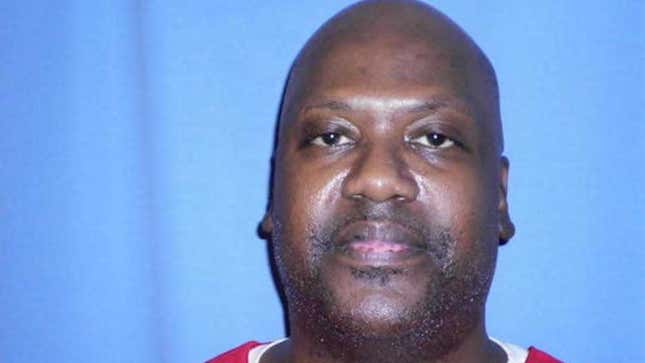
Curtis Flowers walked out of a Mississippi prison a free man for the first time in more than two decades. All it took was six trials, 23 years behind bars, a podcast investigation, a national outcry and a Supreme Court decision, a substantial bond and a judge who disregarded the wishes of a Mississippi prosecutor who wants to still keep Flowers in prison for a crime he maintains he did not commit.
On Monday, Judge Joseph Loper granted 49-year-old Curtis Flowers a $250,000 bond after hearing Assistant District Attorney William Hopper’s plea for Flowers’ continued incarceration, according to the Mississippi Clarion-Ledger. In June, the Supreme Court overturned Flowers’ 2010 conviction for capital murder after ruling that District Attorney Doug Evans’ practice of excluding black people from juries was racially discriminatory.
The judge allowed an anonymous donor to post Flowers’ bond but ruled that he could only leave his home for medical emergencies and meetings with his attorney. Still, it was a victory for the man who maintains he had no involvement in a 23-year-old quadruple robbery/homicide. The jailhouse informants who testified that Flowers confessed have all recanted their testimony. There is no ballistic evidence. The only physical evidence was a bloody shoe print, witnesses who placed Flowers “near” the scene, and the fact that a black man suspiciously had $235 in 1996. “In the Dark,” a popular podcast, investigated the crime and raised public awareness about Evans’ prosecutorial misconduct.
As The Root reported:
In July 1996, four people were shot to death in a Winona, Miss., furniture store. Police arrested Flowers even though he did not fit the description provided by eyewitnesses. In the 20 years since the murder, he has not confessed to police, prosecutors or even his cellmate. Again, he does not fit the description that was given by eyewitnesses. Evans’ prosecution team charged Flowers with the murders and, so far, has tried him six times for the crimes.
After Flowers was convicted and sentenced to death in the first trial, the Mississippi Supreme Court overturned the verdict because of prosecutorial misconduct by Evans. In the second trial, Flowers’ conviction was overturned again because of Evans’ prosecutorial conduct.
In the third trial, the state’s Supreme Court overturned another death-sentence conviction, citing the fact that Evans had excluded black jurors because of their race. The fourth time, with a jury representative of the demographics of the district, the case ended in a mistrial, as did a fifth trial.
In the sixth trial, 11 white jurors and one black juror convicted Flowers again.
Given that evidence of his innocence continues to surface, as well as his excellent prison conduct and the fact that he has no criminal record, bail was required by the law under the unusual circumstances of this case,” said Flowers’ attorney, Rob McDuff of the Mississippi Center for Justice. “We are very pleased that he will finally have some measure of freedom and be able to spend time with his wonderful family. At the beginning of the new year, we will move forward with our efforts to obtain a dismissal of the charges. This has been a long and costly process, and there is no need to continue wasting taxpayer money on this misguided prosecution that has been plagued by misconduct and racial discrimination.”
The small Mississippi town is still racially divided over the 20-year-old crime, with white people saying Flowers is guilty and black people noting that those who believe in Flowers’ guilt are of the Mississippi brand of Caucasians who are not necessarily known for their investigative prowess when it comes to all-white juries and black suspects.
Evans, who still serves as District Attorney, was not at today’s bond hearing and refused to file written responses in the case, which annoyed the judge.
“I want to caution the prosecution that if it continues its dilatory conduct, and/or if it continues to ignore orders issued by this court, the State of Mississippi will reap the whirlwind,” Loper wrote, telling the Asst. DA: “Since your boss chose to be somewhere other than here today, I expect you to convey that to him.”
Flowers could possibly face an unprecedented seventh trial for the murders. Prosecutors can still decide to retry the case instead of dismissing the charges. Ultimately the decision will be in the hands of one man:
Doug Evans.

